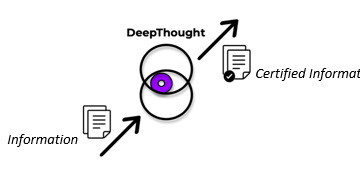Quantum Computing has started to demonstrate its first practical applications. As the technology develops to a point of maturity that allows quantum computers to expand commercially, large companies such as Google, Microsoft, IBM and Amazon are making a considerably effort to make them accessible through the cloud so that research and industry initiatives can test their capabilities. The characteristics of this paradigm and the lack of mature tools still make the process of defining, implementing, and running quantum, or hybrid classical-quantum software systems difficult compared with the procedures used for pure classical ones. To address this lack, we present a demonstration of a method for defining quantum services and the automatic generation of the corresponding source code through an extension of the OpenAPI Specification. In this demo we present an extension that enables developers to define quantum services with a high abstraction level, link them with quantum circuits, and generate the source code of the service to be deployed in a quantum computer in the same way they do for classical services.

Authors:
Javier Romero-Álvarez is a PhD student and research scientist fellow at the University of Extremadura, Spain. He obtained his degree in Computer Science from the University of Extremadura in 2020. His research interests include web engineering, quantum computing, service-oriented computing, mobile computing and Chatbots development.
Jaime Alvarado-Valiente is a PhD student and research scientist fellow at the University of Extremadura, Spain. He obtained his degree in Computer Science from the University of Extremadura in 2020. His research interests include web engineering, quantum computing, service-oriented computing and Chatbots development.
Enrique Mogel is an assistant professor at the University of Extremadura (Spain). He completed his MSc in Computer Science at the University Carlos III (Spain) in 2010 and a PhD in Computer Science at the University of Extremadura in 2018. His research interests include Web Engineering, Smart Systems, and Quantum Computing.
Jose Garcia-Alonso is an Associate Professor at the University of Extremadura, Spain, where he completed his PhD in software engineering in 2014. He is the co-founder of Gloin, a software consulting company, and Health and Aging Tech, an eHealth company. His interests include web engineering, quantum software engineering, pervasive computing, eHealth, and gerontechnology.
Juan M. Murillo is Full Professor at the University of Extremadura, Spain, CEO of the COMPUTAEX foundation, and co-founder of the start-up Gloin. His research interests include software architectures, Pervasive and Mobile Computing and Quantum Computing. Murillo holds a PhD in computer science from the University of Extremadura.
